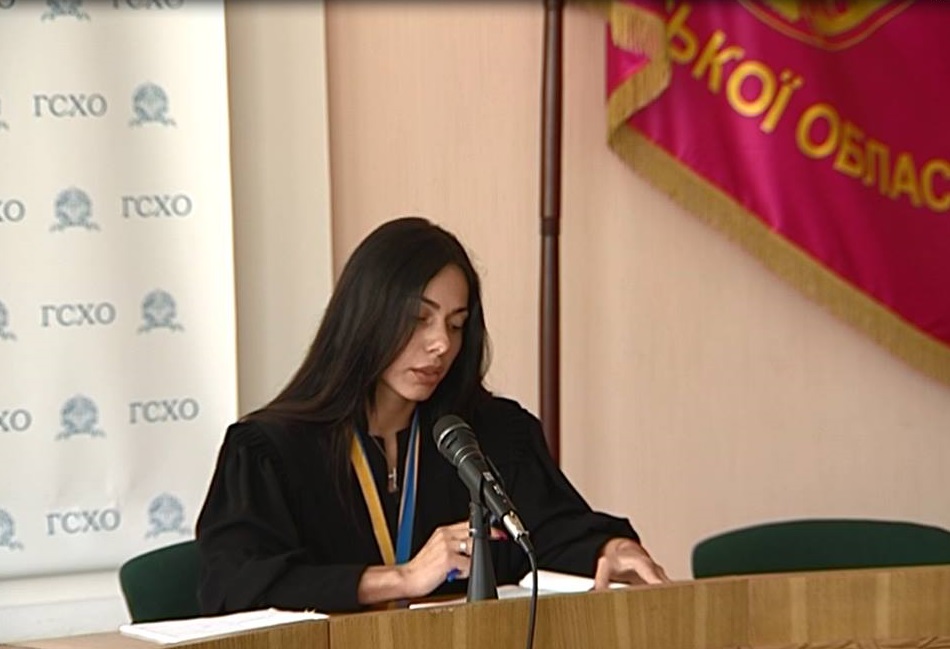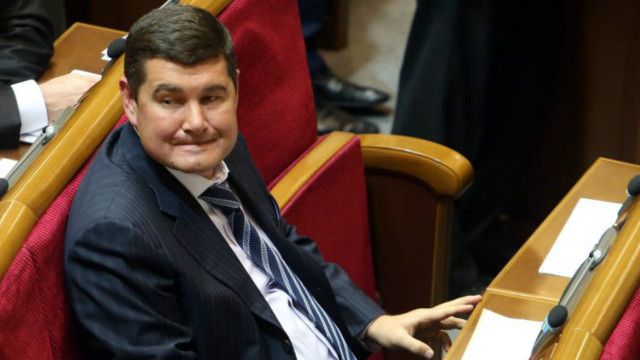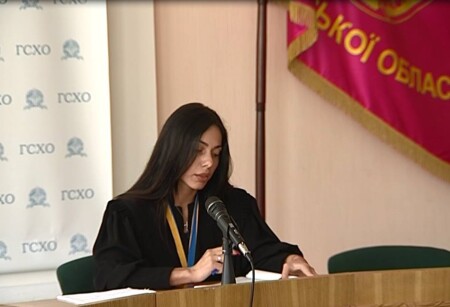Case description
On May 26, 2021, the HACC acquitted Kharkiv judge Tetiana Denysiuk, who was charged with abuse of office during the proceedings on the gas schemes of former MP Onyshchenko who fled Ukraine.
Tetiana Denysiuk is a judge of the Commercial Court of Kharkiv region. According to the investigation, in 2016, she adopted a deliberately illegal decision in favor of the Karpatnadrainvest enterprise.
Back in 2015, the NABU investigated a case of embezzlement during the production and sale of natural gas. The state-owned Ukrgazvydobuvannya was engaged in gas and gas condensate production jointly with Onyshchenko's private companies under joint venture agreements. However, the Cabinet of Ministers then decided to raise the rent that such companies had to pay for the use of subsoil.
So, in order not to lose profit, the participants in the scheme decided to sell this gas to intermediaries on fictitious exchanges at lower prices. The latter, in turn, sold it to consumers at the market price, and the organizers of the scheme took the difference in value. The losses the state incurred during the year of the scheme's operation amounted to about UAH 3 billion.
Oleksandr Onyshchenko was only one of the organizers, and it was he who controlled the private company Karpatnadrainvest. Later, the NABU seized the fuel received by the company, and in November 2016, Ukrgazvydobuvannya went to court to recover the debt from the company. The private company agreed to pay the debt with a deferred payment plan and filed a counterclaim, asking for all the seized gas to be returned to it.

Denysiuk ruled, in particular, on the basis of a counterclaim where Karpatnadrainvest failed to pay the court fee, which also caused damage to the state. The judge ordered the state-owned enterprise to transfer the seized gas and condensate to the private company and postponed the payment of the debt to Ukrgazvydobuvannya for a year, further reducing the penalty by UAH 40 million. This decision was later overturned in the appellate instance.
Prosecutors saw signs of a crime in the actions of Judge Denysiuk, in particular, that she allegedly overstepped her authority and created grounds for overturning the arrest in criminal proceedings in the framework of a commercial case.
The defense argued that the charge against Denysiuk was unfounded, citing the absence of any indication of abuse of power or official position in the defendant’s actions. The defense also emphasized that, at the time of the events, the practice of imposing court fees was inconsistent and lacked uniformity. Therefore, it would not have been clear to the defendant which specific actions or omissions might constitute a legal violation.
The defense further argued that Denysiuk’s actions did not demonstrate any intentional abuse of official position or other improper performance of duties that could have caused significant harm to the interests of the state or its citizens.
The HACC qualified Denysiuk's actions under Article 364(2) of the Criminal Code of Ukraine. The Kharkiv judge was eventually acquitted because, according to the HACC, the accusation was based only on assumptions. The prosecutor, however, asked for a 4-year sentence with a fine and deprivation of the right to hold certain positions.
The prosecutor also stated that the director of the Karpatnadrainvest enterprise knew and worked with Denysiuk's brother and father. The judge also rejected the recusal of Ukrgazvydobuvannya's lawyer: apparently, this information did not influence the HACC decision.
The appellate instance in response to the prosecutor's complaint overturned the HACC decision and ordered a new trial in the first instance court. In November 2024, the HACC re-acquitted Denysiuk in connection with the lack of evidence in her actions of a criminal offense.
According to the court, the presented body of evidence—along with the content of the ruling by the Kharkiv Commercial Court of Appeal—indicates that the defendant’s position regarding the reduction of the penalty and the postponement of enforcement of the original claim was not properly substantiated in her decision. At the same time, the court found no evidence that Denysiuk had communicated with others to influence the outcome of the commercial case.
The court noted that the decision of the Kharkiv Commercial Court had been appealed and had not entered into legal force, and therefore did not result in any serious consequences in this case. Also, some of the circumstances outlined in the indictment (such as the preparation of a draft court decision by a third party or the defendant’s possible connection to Karpatnadrainvest LLC) were not conclusively proven during the trial.
The case is now once again before the HACC Appeals Chamber.

The appellate instance in response to the prosecutor's complaint overturned the HACC decision and ordered a new trial in the first instance court. In November 2024, the HACC re-acquitted Denysiuk in connection with the lack of evidence in her actions of a criminal offense.
According to the court, the presented body of evidence—along with the content of the ruling by the Kharkiv Commercial Court of Appeal—indicates that the defendant’s position regarding the reduction of the penalty and the postponement of enforcement of the original claim was not properly substantiated in her decision. At the same time, the court found no evidence that Denysiuk had communicated with others to influence the outcome of the commercial case.
The court noted that the decision of the Kharkiv Commercial Court had been appealed and had not entered into legal force, and therefore did not result in any serious consequences in this case. Also, some of the circumstances outlined in the indictment (such as the preparation of a draft court decision by a third party or the defendant’s possible connection to Karpatnadrainvest LLC) were not conclusively proven during the trial.
The case is now once again before the HACC Appeals Chamber.



































